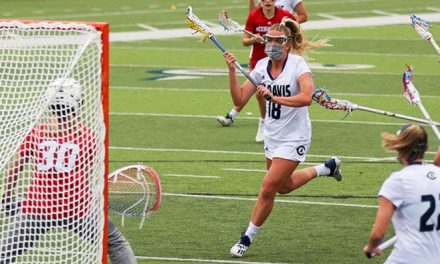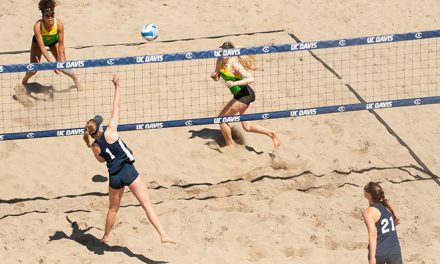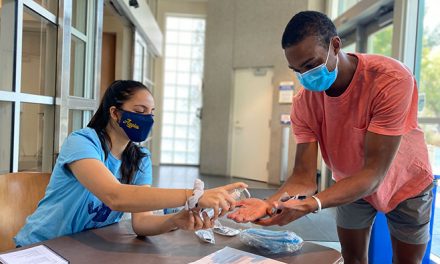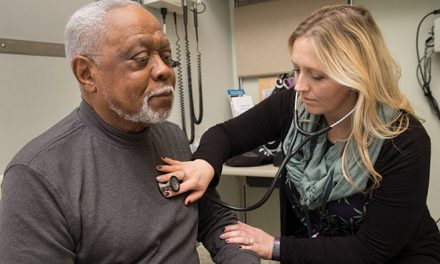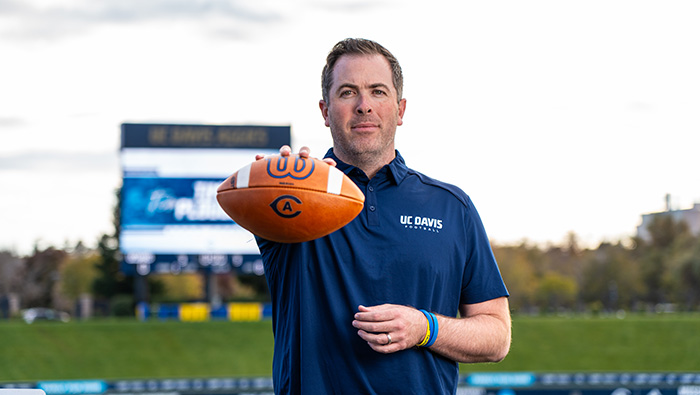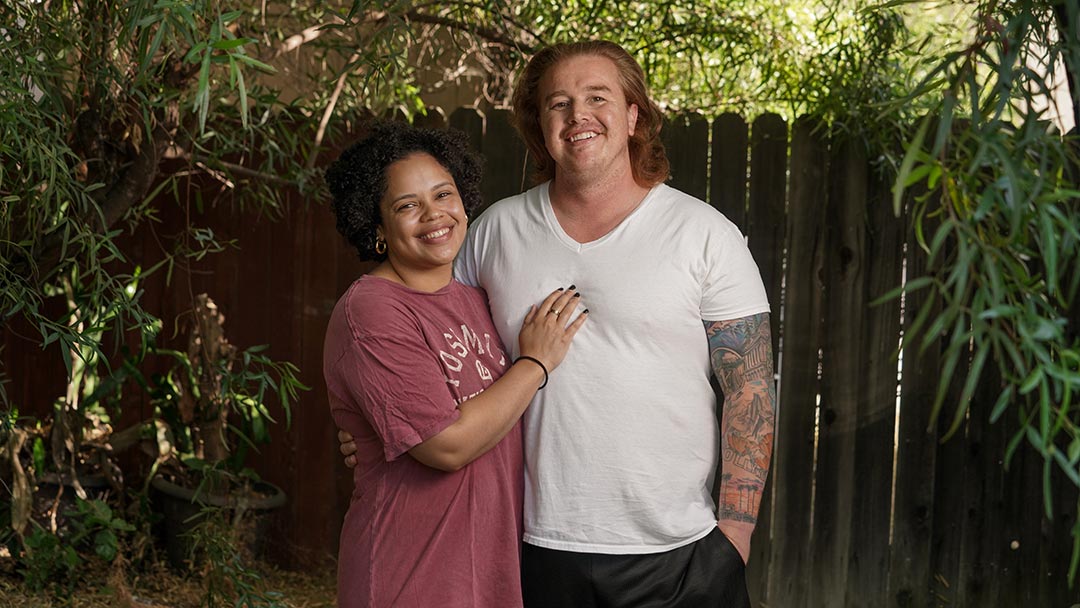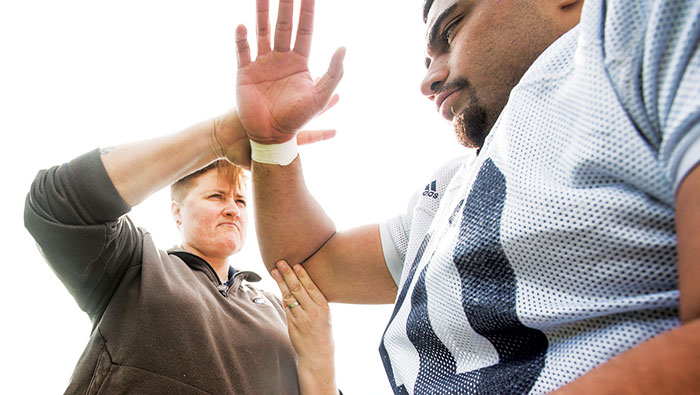
Head football athletic trainer Julieta Guzman works on junior running back Manusamoa Luuga after practice at Aggie Stadium.
Photo: Karin Higgins/UC Davis
The Dream Team
Like the other 249 NCAA Division I football programs, UC Davis has strong sports medicine leaders that help keep the Aggies healthy and ready to play. But the medical staff has one noteworthy distinction: They’re all women.
And though women who work in athletic training are quite common (and most of the Aggies’ staff comprises women), an all-female sports medicine leadership team is unusual. In fact, Tina Tubbs, director of sports medicine, said she’s hard-pressed to think of another Division I institution that has one.
Tubbs oversees athletic training for 23 intercollegiate varsity sports and more than 600 student-athletes at UC Davis, but spends a considerable amount of time working with the football team along with head football athletic trainer Julieta Guzman and head team physician Dr. Melita Moore. Together, they’re in contact with 100 football student-athletes throughout the year, with the busiest weeks in the fall, when the team competes; and the spring, when a monthlong set of practices highlights the Aggies’ offseason training.
They roam the sidelines, evaluating players who get injured, helping rehab those trying to get back on the field and conferring on the team’s readiness with head coach Ron Gould. Guzman is part of the daily coaching staff meetings, keeping all the football coaches up to date on player health. The sports medicine staff has final say on those who are healthy enough to practice and compete.
Player safety is paramount to Gould, and he said he has complete confidence in his medical team, which also includes Dr. Cassandra Lee, who serves as the program’s head orthopaedic surgeon.
“These are the best people that any school could be blessed to have on their staff,” he said. “They do things the right way and the care they have for our student-athletes is second to none. I trust them explicitly and I never have to worry about whether the players are getting the right treatment.”
Guzman previously worked with Gould on the athletic training staff at UC Berkeley, where he was assistant head football coach for the Bears. Tubbs brought her on board in 2013.
Tubbs also pushed for the addition of a full-time head team physician — a new position to the athletic program — and UC Davis hired Moore last year. She was most recently at Ohio State and is recognized as a leader in concussion treatment, currently a high-priority issue at all levels of football. Lee was already on staff at the UC Davis Medical Center before adding her team duties.
Still, Guzman emphasized, gender didn’t play a role in the formation of the medical team.
“The people we have in these positions were not put in them because they’re female,” Guzman said. “They were the best people that were available.”
Top wide receiver Ramon Vargas, who has spent his share of time with the athletic training staff dealing with various injuries, agreed: “It stands out to me how good they are but not that they’re female.”
The team faces typical challenges associated with their roles. But any difficulty working in close proximity to football players in a locker room setting has been negated because of staff professionalism and the team’s maturity, said Tubbs.
And despite working in a male-dominated sport with a rugged and tough reputation, she added, she hasn’t felt the need to try to prove herself as a medical professional because of her gender, confident in the exemplary care her team gives its student-athletes.
“It’s definitely meeting those goals that Chancellor Katehi has set in that we want to be a flagship,” Tubbs said. “I don’t just want to hit the standard; I want to set the standard for other universities.”

